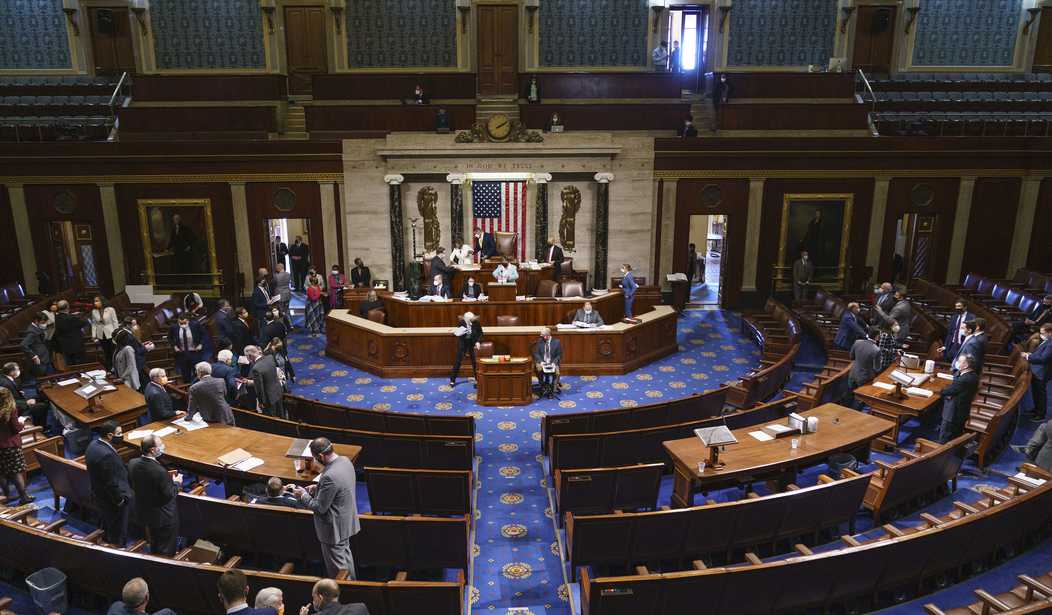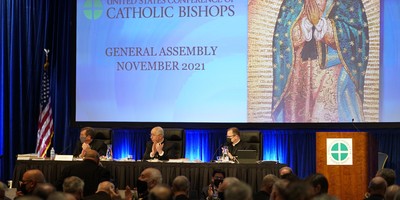Americans do not have tremendous respect for the honesty and ethical standards of car salesmen or journalists, but they still give people in these professions a higher rating for these characteristics than they give to members of Congress.
This week, as first reported Tuesday by The New York Post, Gallup released the results of a survey it conducted on how Americans perceive the honesty and ethical standards of people in different professions. (Gallup first did this survey in 1976 and has done it annually since 1990.)
From Nov. 9 to Dec. 2, 2022, according to a release put out by the polling company, Gallup asked 1,020 American adults this question: "Please tell me how you would rate the honesty and ethical standards of people in these different fields — very high, high, average, low or very low?"
The survey then listed 18 different professions — ranging from bankers to lawyers to members of Congress.
Only 2% of the respondents gave members of Congress a "very high" rating for honesty and ethical standards, while another 7% gave them a "high" rating. With a combined 9% of the Americans surveyed giving them either a "high" or a "very high" rating, members of Congress ranked 17th out of the 18 professions included in the survey for their honesty and ethical standards.
Telemarketers came in last. Like members of Congress, 2% of those surveyed gave them a "very high" rating for their honesty and ethical standards, but only 4% gave them a "high" rating. That combined 6% left telemarketers 3 points behind the combined 9% scored by members of Congress.
Recommended
Still, while members of Congress managed to outrank telemarketers for their perceived honesty and ethical standards, they still trailed "car salespeople." That profession got 2% of respondents to rank them "very high" and 8% to rank them "high." This combined 10% put car salesmen one point ahead of members of Congress for their honesty and ethical standards.
Journalists managed to beat members of Congress by only one point (3 to 2) among those who ranked them "very high" for their honesty and ethical standards, but outscored them by 13 points (20 to 7) among those who ranked them "high" for their honesty and ethical standards. The combined 23% who rated journalists as either "high" or "very high" for honesty and ethical standards beat by more than two to one the combined 9% who gave members of Congress "high" or "very high" ratings.
Members of Congress also lost the honesty-and-ethical-standards competition to lawyers, who were ranked "very high" by 3% of respondents and "high" by 18% — for a combined 21%.
In the years since 1976, when Gallup first conducted its survey on how Americans perceive the honesty and ethics of various professions, members of Congress attained their highest rating in a survey conducted in late November 2001 — about two and a half months after the 9/11 terrorist attacks. In that survey, 4% of respondents gave members of Congress a "very high" rating and 21% gave them a "high" rating — for a combined 25%.
Ten years later — in a survey conducted from Nov. 28 to Dec. 1, 2011 — the percentage of respondents ranking the honesty and ethics of members of Congress as "very high" or "high" dropped to an all-time low of 7%. It then hit that low again in December 2014.
At the other end of the spectrum from members of Congress are medical professionals, who get high rankings from Americans for their honesty and ethical standards.
Twenty-nine percent of respondents to the latest Gallup survey gave nurses a "very high" rating for their honesty and ethical standards, while another 50% gave them a "high" rating. That combined 79% made nurses the nation's highest-rated profession for honesty and ethical standards.
Medical doctors came in second with a combined rating of 62% (17% "very high" and 45% "high").
Pharmacists came in third with a combined rating of 58% (14% "very high" and 44% "high").
How survey respondents judged the honesty and ethical standards of members of Congress differed only slightly depending on the respondent's political philosophy: Neither conservatives, moderates nor liberals gave members of Congress high ratings.
In fact, not one conservative respondent gave members of Congress a "very high" rating for honesty and ethical standards, while only 2% of moderates and 2% of liberals did. Only 5% of conservatives gave members of Congress a "high" rating for honesty and ethical standards while 7% of moderates and 9% of liberals did.
What can members of Congress do to win the respect of the American people for conducting themselves with honesty and ethical standards?
Their job is not to impose an increasingly intrusive government on this nation but to protect our freedom from such a government.
If members of Congress fight to make government smaller, there is a very good chance their ratings will go higher.
Terence P. Jeffrey is the editor-in-chief of CNSnews.com.

























Join the conversation as a VIP Member